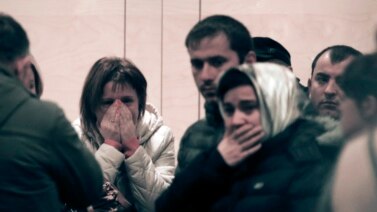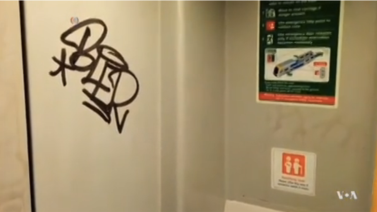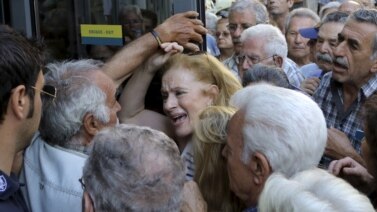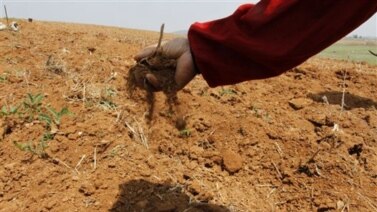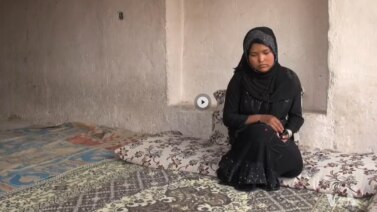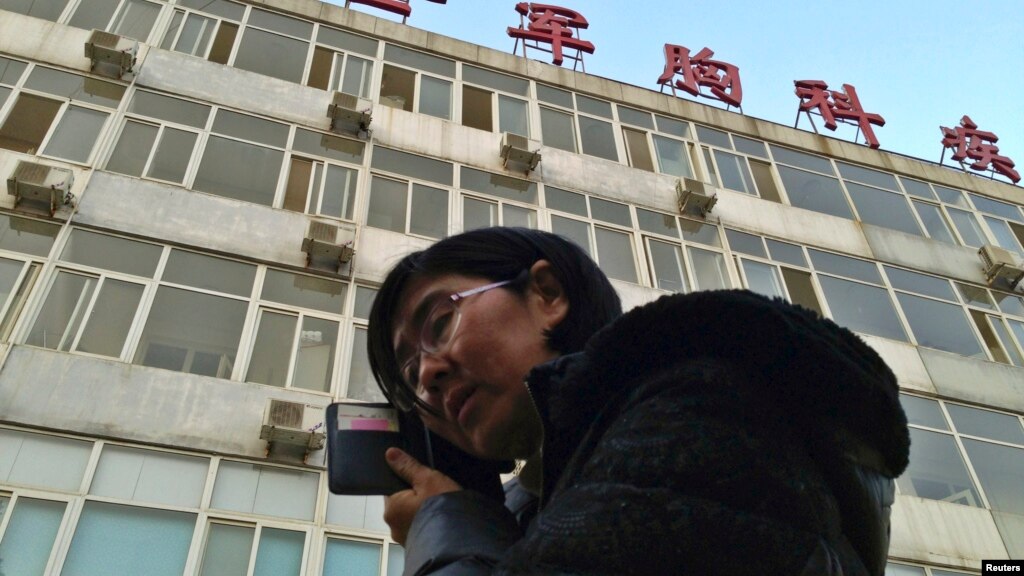
China has detained or questioned more than 100 human rights lawyers and activists recently. Rights groups are sharply critical of the Chinese government. They are describing its actions as the worst crackdown in 20 years.
The China Human Rights Lawyers Concern Group reported Monday that 114 human rights lawyers and activists from 18 provinces were called in for questioning. At least 22 are said to remain in police detention. The Hong Kong-based group said those affected include some of China’s most famous human rights lawyers.
Mass detentions follow lawyer’s disappearance
On the morning of July 9, lawyer Wang Yu was taken from her home by police. Her whereabouts remain unknown. Ms. Yu was China’s first female human rights lawyer. She won international recognition in recent years for defending economist Ilham Tothi, a Uighur. He is now serving a life sentence on separatism charges. Wang Yu also defended rights activist Cao Shunli, who died in police detention.
Not long after Ms. Wang’s detention, more than 100 lawyers across China signed an open letter protesting her disappearance. The China Human Rights Lawyers Concern Group reported the existence of the letter.
Officials later detained some of those who signed their names to the list, as well as two members of the Beijing Fengrui Law Firm, Zhou Shifeng and Liu Xiaoyuan. Their office recently came under attack by Chinese state media. The Xinhua news agency reported that the firm had taken on more than 40 “sensitive” cases since July 2012. Xinhua said the cases seriously disturbed the social order.
One of those questioned was Ge Yongxi, a lawyer from Guangdong. He has defended Christian clergymen and anti-corruption activists. He was released Saturday night after hours of questioning. Gu Yongxi later said he was questioned because of his support for Wang Yu.
He said “I don’t believe this [crackdown] will cool down people’s attention to Wang Yu’s and Zhou Shifeng’s cases. The reason we’ve voiced our support behind Wang was to promote the rule of law by public security officers, who haven’t fully abided by the laws in many ways.”
Mass arrests under national security law
Hong Kong lawyer Albert Ho said the Chinese government’s actions are aimed at trying to silence the legal community. “We are very concerned about the situation, and this is the most massive crackdown we’ve seen in this period,” he said.
Lawyer Mo Shaoping defended China’s detained Nobel Peace Prize winner Liu Xiaobo. He called the crackdown ridiculous because many of the lawyers are working on cases in which China’s public security officers are accused of wrongdoing. The arrest of the lawyers is unjust, he said.
Lawyer Ge said the officials’ actions call into question President Xi Jinping’s efforts to support the rule of law. Mr. Ge urged U.S. President Barack Obama to press Mr. Xi on human rights in China when they meet in September.
Earlier this year, China released a new “National Security Law.” Observers say the law gives police the ability to suppress human rights because “national security” is defined in a very broad way.
On Monday, the U.S. State Department expressed concern over the detentions. A statement said, “We strongly urge China to respect the rights of all of its citizens and to release all those who have recently been detained for seeking to protect the rights of Chinese citizens.”
I’m Jim Tedder.
Joyce Huang reported on this story for VOANews.com. Ashley Thompson adapted it for Learning English. George Grow was the editor.
Words in This Story
crackdown - n. a serious attempt to punish people for doing something that is not allowed; a campaign or operation
disturb - v. to change the position or order of (something)
ridiculous - adj. extremely unreasonable
broad – adj. covering a wide area; from side to side
